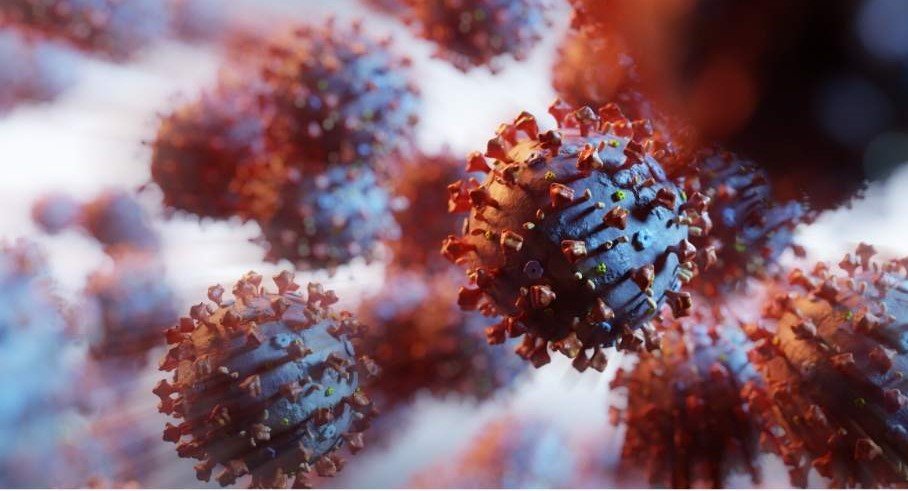
11 Mar 2022 Other
Inquiry highlights the impact of COVID-19 on blood cancer services
A new report has recently been published, following an inquiry by the All-Party Parliamentary Group (APPG) on Blood Cancer and the APPG on Stem Cell Transplantation and Advanced Cellular Therapies, on the impact of Covid-19 on blood cancer services in the UK.
The inquiry forms part of an increasing body of evidence that reveals the ongoing impact of Covid-19 on the blood cancer community, including on those living with leukaemia.
Impact on diagnosis
Despite being the fifth most common cancer, early diagnosis and referrals for blood cancers, including leukaemia, lag behind other cancers. Even before the pandemic, a staggering proportion of leukaemia cases were diagnosed via emergency routes.
The NHS data highlighted in the report warns that the pandemic led to even more blood cancer diagnoses in emergency settings, when the likelihood of survival is worse.
Fiona Hazell, Chief Executive of Leukaemia UK, said:
“We welcome this study and the robust insight it provides on the impact of Covid-19 on the blood cancer community, including on those living with leukaemia. It is of vital importance that the needs of people with blood cancer are not overlooked as the country and the NHS recovers from the pandemic.
The 10-year cancer plan provides one opportunity to achieve this but leukaemia and other blood cancers must be included if we’re to improve and save the lives of those affected. We encourage the Government to work with the NHS to use this opportunity to create more ambitious early diagnosis objectives for cancer services in general, and blood cancer services in particular.”
In order to increase early diagnosis, public awareness of the signs and symptoms of blood cancer is also hugely important. Often difficult to spot, symptoms include fatigue, shortness of breath, unusual bleeding or bruising, joint pain, fever and repeated infections.
Leukaemia UK are supporting the NHS’ recently launched “Help Us, Help You” campaign, encouraging the public to visit their GP if they think they have signs or symptoms of cancer. On top of this, a blood cancer-specific awareness campaign under the NHS’ “Help Us, Help You” banner could be hugely beneficial.
A process for ‘Self-Referral’ is also strongly recommended as part of the improvements for faster blood cancer diagnosis. We encourage the Government to provide additional resource to the NHS as part of the Rapid Diagnostic Centre (RDC) pathway initiative to pilot self-referral as soon as is feasible.
Public Awareness and Continued Support
The report also highlights that a persistent challenge faced by immunocompromised groups is a lack of public awareness of the challenges they face due to having compromised immune systems.
If the public better understood how vulnerable this group of people are to Covid-19 and other infections, it is hoped that they would be more likely to take on protective behaviours such as mask wearing indoors.
The Government needs to work with the NHS to develop a long-term strategy for immunocompromised people. This would include the coordination of COVID-19 related support, a public awareness campaign of the ongoing risk this group of people face, and clear and timely communications and guidance for immunocompromised people in a range of formats and languages.
Further information on the report’s findings
The APPG report, Scared & Forgotten: An inquiry into the impact of COVID-19 on blood cancer services, highlights NHS data showing that:
- More blood cancers were diagnosed through emergency presentation at A&E than any other route from May to September 2020 in England.
- New blood cancer diagnoses fell by 27% in April and May 2020 compared to the same months in 2019, and as of September 2021 (the latest data available) blood cancer diagnoses remain below the average for 2019.
People with blood cancer diagnosed in A&E are known to have significantly reduced chances of surviving compared to those diagnosed via an outpatient appointment. Only 40% of people with blood cancer live for three years or more if they are diagnosed in emergency settings, compared to 77% of those diagnosed via their GP.
The report highlights that there it is estimated that in total there are over 47,000 fewer than expected cancer diagnoses in the UK since March 2020. Among the cancer types with the highest rates of “missing” diagnoses are two blood cancers – myeloma (for which there was a 14% reduction in diagnoses) and lymphoid leukaemia (for which there was a 12% reduction in diagnoses).
You can read the full report here.
Related posts
12 December 2022
Widespread coverage of new leukaemia therapy shows promise in first trial patient
As you may have seen in the news over the weekend, a clinical trial investigating a new leukaemia treatment has shown promising results. As part of the trial, funded by…
8 November 2022
Leukaemia UK announces John Goldman Fellows for 2022
Leukaemia UK has awarded their prestigious John Goldman Fellow research grants to four outstanding early-career researchers seeking to advance our understanding of and ability to treat blood cancer. Leukaemia UK…
18 November 2024
Leukaemia UK’s Patient Care Pioneer Award fuels innovative research to revolutionize ‘watch and wait’ approach
Leukaemia UK is excited to announce Professor Francesco Forconi from University Hospital Southampton (UHS) as the first recipient of its Patient Care Pioneer Award. Through this new funding initiative, Professor…
19 December 2023
Beloved actor who beat leukaemia now fronting charity TV ad to help raise vital funds
83-year-old actor Richard Tate will appear on screens from 26th December onwards to support Leukaemia UK’s call for legacy pledges (otherwise known as gifts in Wills), after surviving leukaemia thanks…